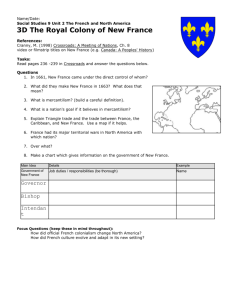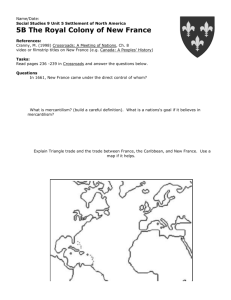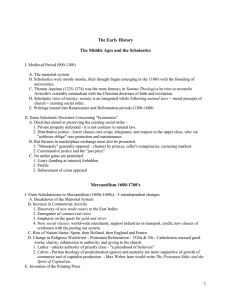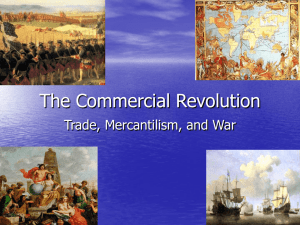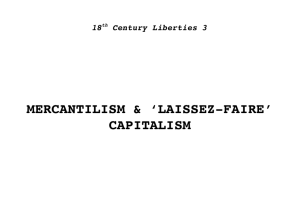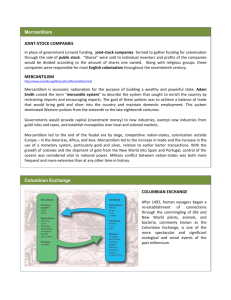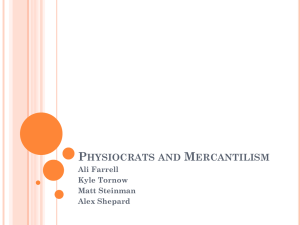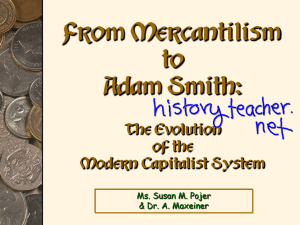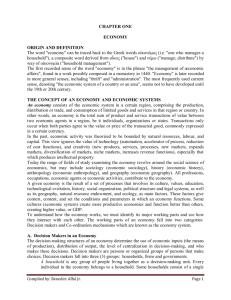Influences of Mercantilism
advertisement
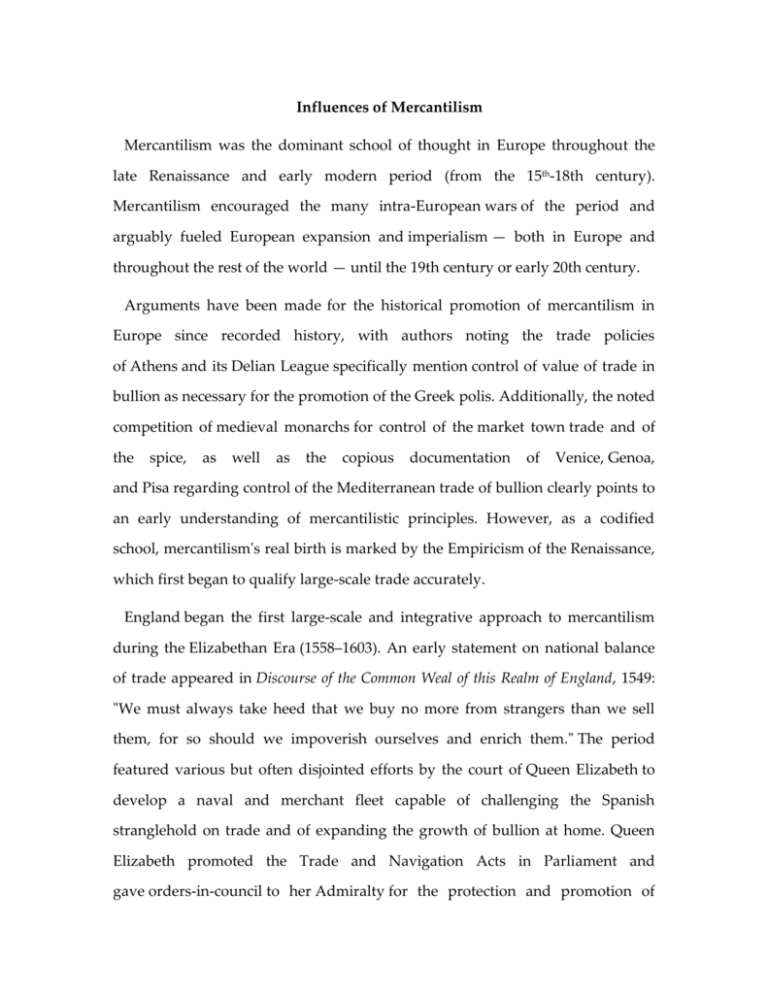
Influences of Mercantilism Mercantilism was the dominant school of thought in Europe throughout the late Renaissance and early modern period (from the 15th-18th century). Mercantilism encouraged the many intra-European wars of the period and arguably fueled European expansion and imperialism — both in Europe and throughout the rest of the world — until the 19th century or early 20th century. Arguments have been made for the historical promotion of mercantilism in Europe since recorded history, with authors noting the trade policies of Athens and its Delian League specifically mention control of value of trade in bullion as necessary for the promotion of the Greek polis. Additionally, the noted competition of medieval monarchs for control of the market town trade and of the spice, as well as the copious documentation of Venice, Genoa, and Pisa regarding control of the Mediterranean trade of bullion clearly points to an early understanding of mercantilistic principles. However, as a codified school, mercantilism's real birth is marked by the Empiricism of the Renaissance, which first began to qualify large-scale trade accurately. England began the first large-scale and integrative approach to mercantilism during the Elizabethan Era (1558–1603). An early statement on national balance of trade appeared in Discourse of the Common Weal of this Realm of England, 1549: "We must always take heed that we buy no more from strangers than we sell them, for so should we impoverish ourselves and enrich them." The period featured various but often disjointed efforts by the court of Queen Elizabeth to develop a naval and merchant fleet capable of challenging the Spanish stranglehold on trade and of expanding the growth of bullion at home. Queen Elizabeth promoted the Trade and Navigation Acts in Parliament and gave orders-in-council to her Admiralty for the protection and promotion of English shipping. A systematic and coherent explanation of balance of trade was made public through Thomas Mun’s 1630 "England's treasure by foreign trade or, the balance of our foreign trade is the rule of our treasure"http://en.wikipedia.org/wiki/Mercantilism - cite_note-2#cite_note-2 These efforts organized national resources sufficiently in the defense of England against the far larger and more powerful Spanish Empire, and in turn paved the foundation for establishing a global empire in the 19th century. The authors noted most for establishing the English mercantilist system include Gerard de Malynes and Thoman Mun who first articulated the Elizabethan, which in turn was then developed further by Josiah Child. Numerous French authors helped cement French policy around mercantilism in the 17th century. This French mercantilism was best articulated by Jean-Baptiste Colbert (in office, 1665–1683), though policy liberalised greatly under Napoleon. In Europe, academic belief in mercantilism began to fade in the late 18th century, especially in England, in light of the arguments of Adam Smith and the classical economists. The repeal of the Corn Laws by Robert Peel symbolized the emergence of free trade as an alternative system. Mercantilism never returned to popularity among economists as the principle. Comparative Advantage shows the gains from international trade. However, during the Great Recession countries raised tariffs in an attempt to protect their industries, sharply reducing world trade.
